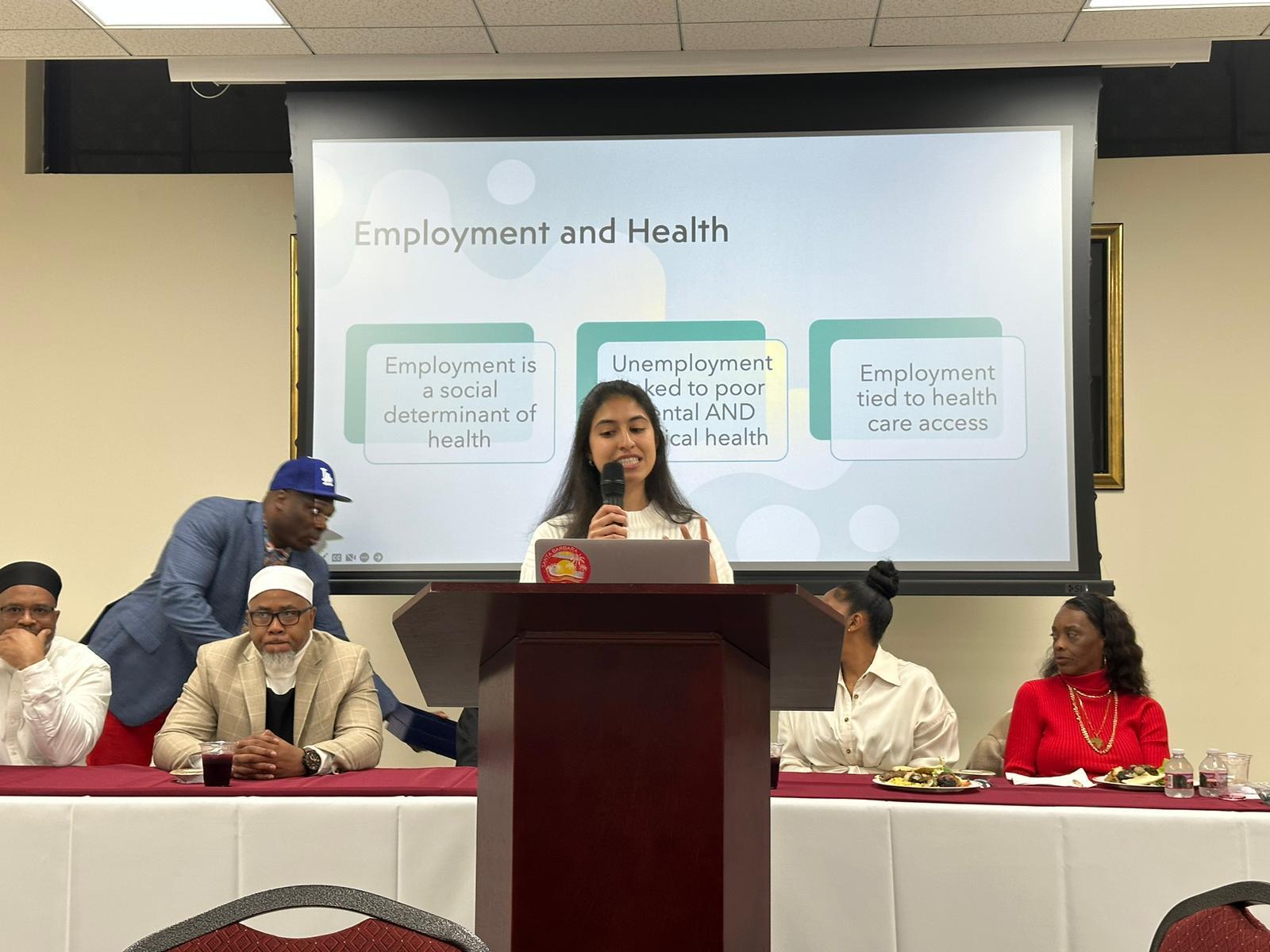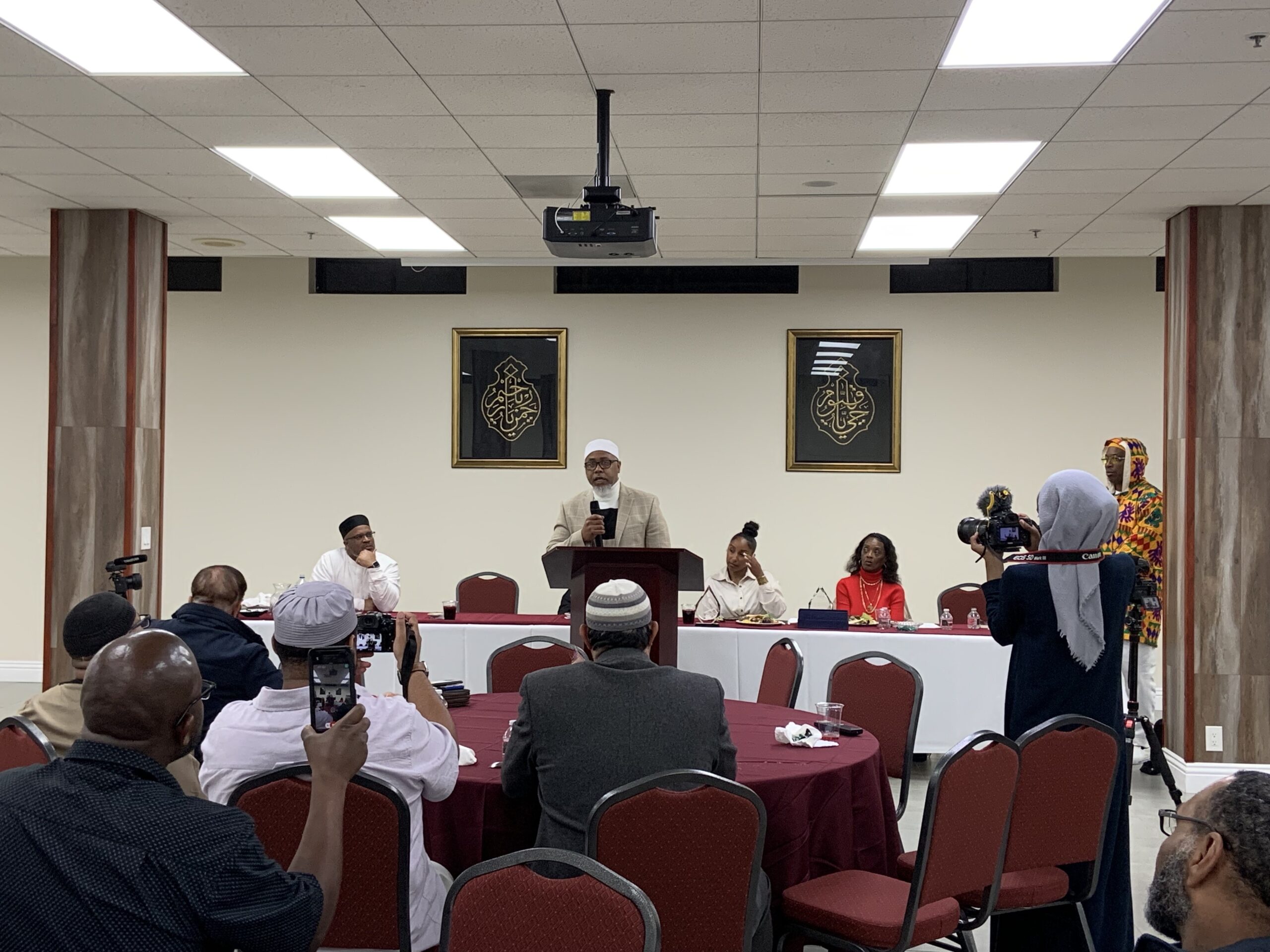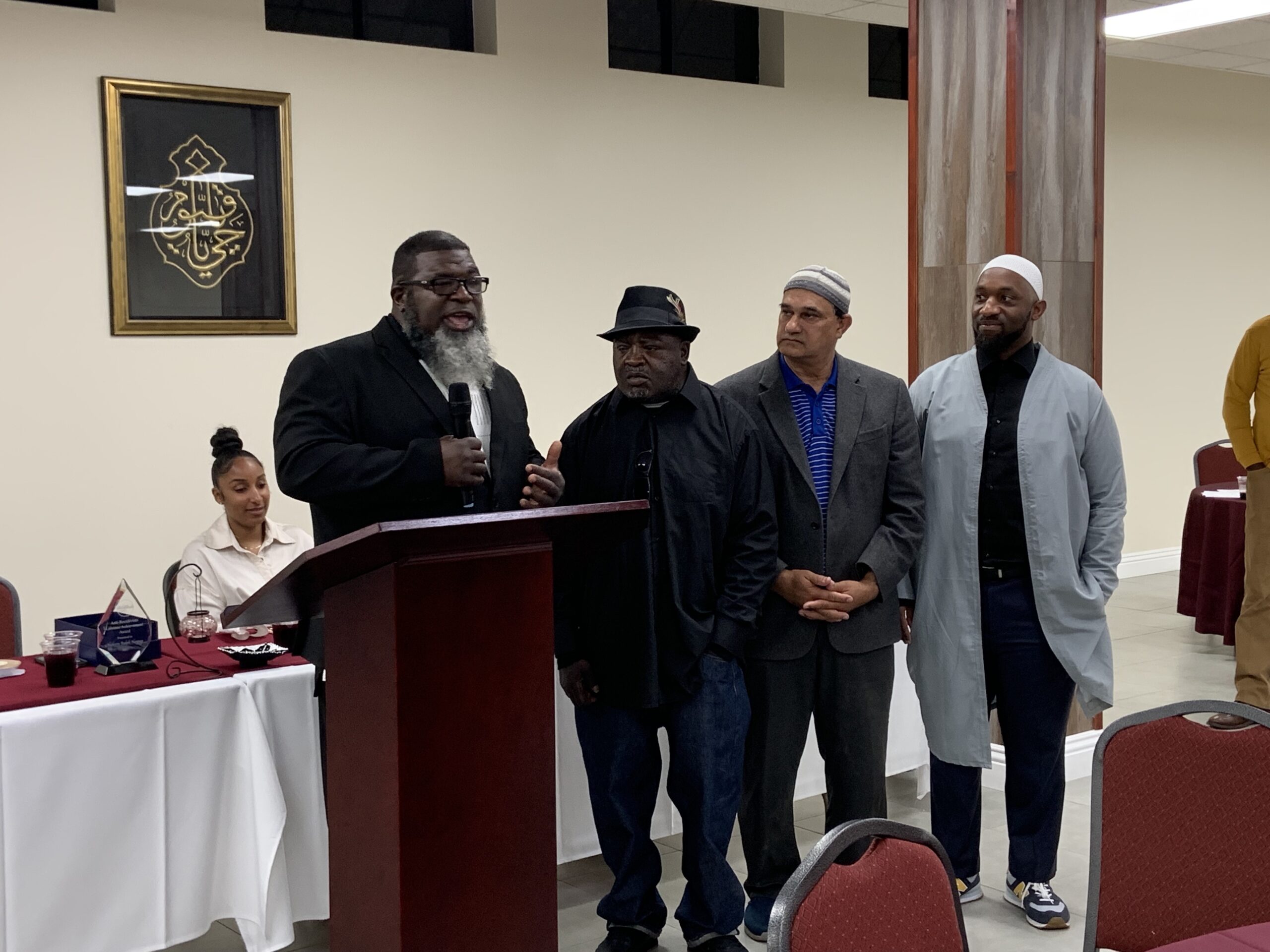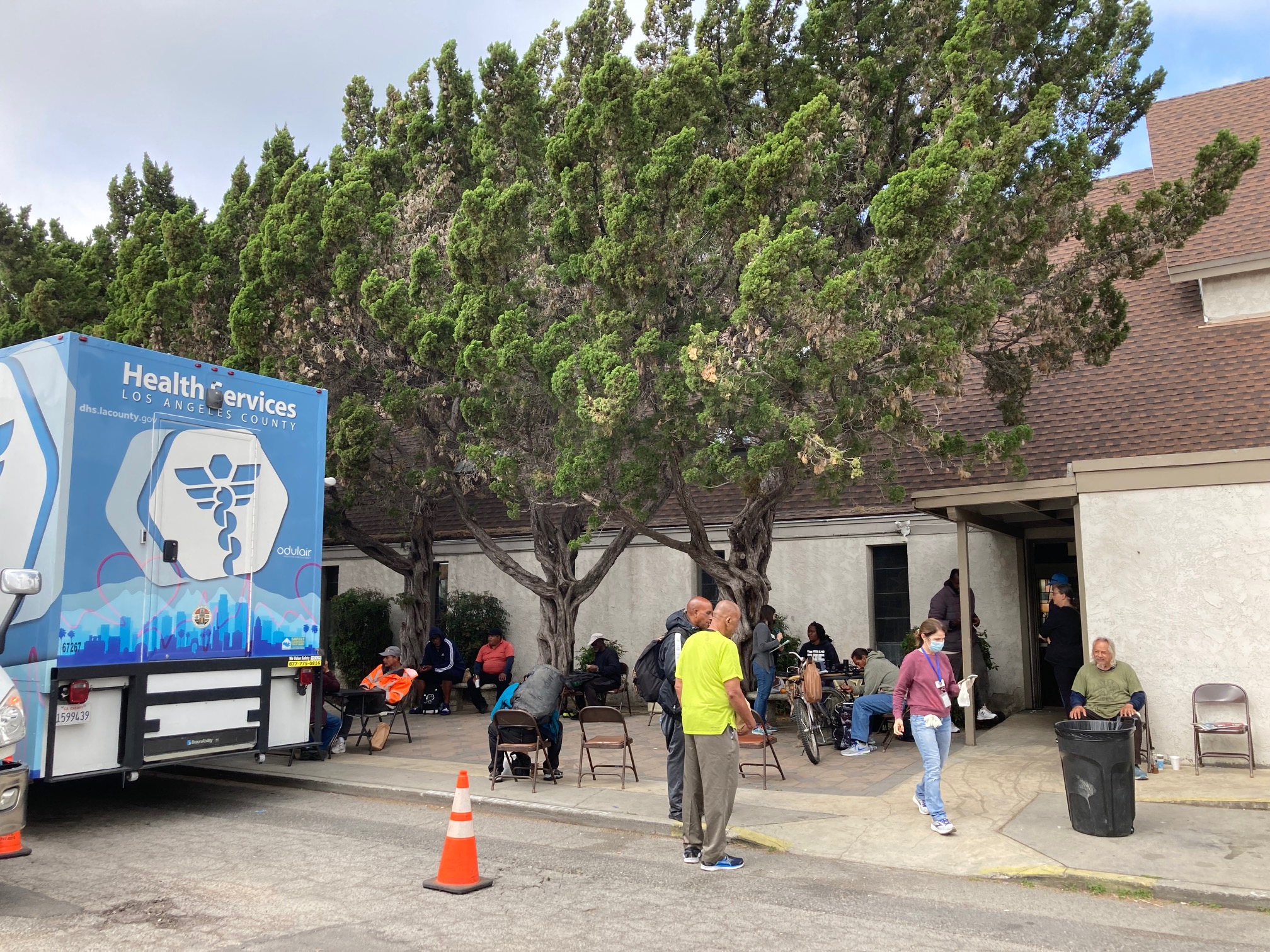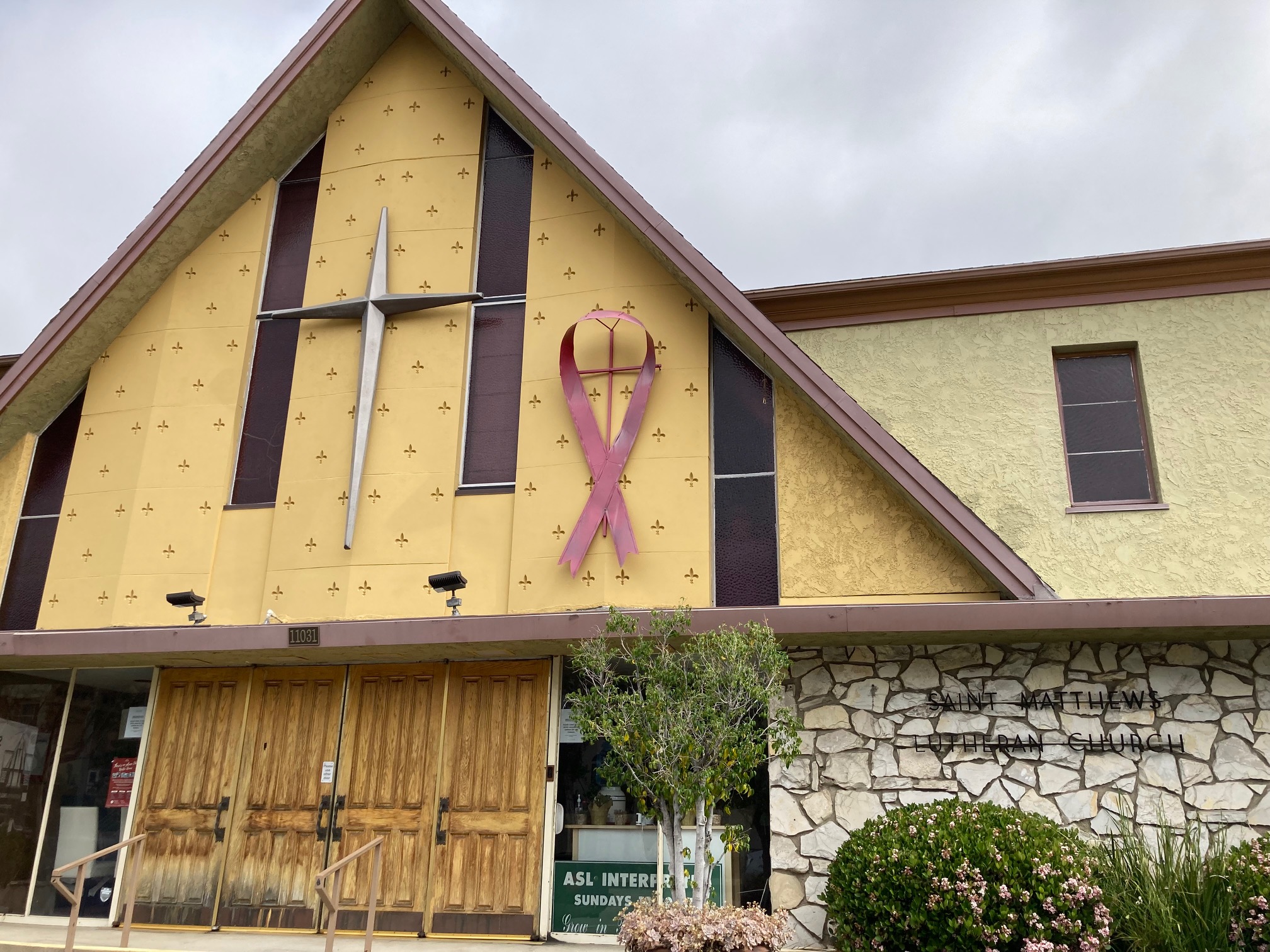
On May 6, 2023, I had the honor of attending and speaking at the inaugural Anti-Recidivism Eid Celebration for Returning Citizens organized by ISLAH LA, an urban community center in South Los Angeles (LA) founded by Black Muslims. Traditionally, Muslims worldwide come together to celebrate Eid-al-Fitr marking the end of Ramadan, the holy month of fasting and spiritual striving in Islam. What made ISLAH LA’s Eid celebration particularly memorable was its guest of honors, the community members returning from prison in attendance. The program was dedicated to serving those impacted by the United States carceral system and publicly supporting community members with a history of systems involvement as they reintegrate into society.
Upon entering the banquet hall of the mosque, I was immediately greeted by a sea of friendly faces. I received a warm welcome from Brother DeDe, ISLAH LA’s Re-Entry Program Manager, with whom I have been closely collaborating to develop an employment support intervention for the re-entry community. Once seated, I attentively listened to the speakers, all of whom were directly harmed by incarceration.
Brother Noel, a community health worker with lived experience of incarceration, emceed the event, sharing with us the challenges he faced in convincing his parole officer to allow him to attend the event. Still, his lightheartedness and easygoing demeanor made the audience feel comfortable right away. Brother Tobias, who spent years behind bars for a wrongful conviction, spoke about his work conducting prison outreach and offering spiritual and college-level education to incarcerated Muslims through Link Outside. Sister Rasheedah Imani Jones shared her personal story of growing up with her loved ones in prison and how that led her to pursue social work and become a mental health advocate.
I had the opportunity to discuss the re-entry landscape in LA and introduce our upcoming pilot to increase employment rates among our systems-impacted community-members. The audience actively engaged and responded with abundant affirmations. We then proceeded to share a delicious Persian meal together and indulged in delightful bean pies for dessert.
But the most moving part of the night was the award ceremony to honor the legacies of three formerly incarcerated individuals who are now leaders in the re-entry community. Brother Hakim Ralph Haynes received the Anti-Recidivism Lifetime Achievement Award for his ongoing work in gang intervention and conflict mediation. Over the past 20+ years, Brother Hakim, using his prior gang affiliation to gain credibility with gang members, successfully resolved countless gang disputes.
Ms. Betty McKay was honored with the Anti-Recidivism Peace-Builder award for her efforts in providing bail assistance and legal bond services to women in jail as well as her continued work at Essie Justice Group where she offers psychosocial peer support to women with loved ones behind bars.
Brother Yusuf Wiley was presented with the Anti-Recidivism Humanitarian award for his contributions in housing and workforce development through his organization, Timelist. His aim is to impart dignity to the re-entry population, and he has achieved this by employing 134 formerly incarcerated adults within his organization.
As stories were exchanged by the award recipients, the audience erupted in applause. The night concluded with prayer, joy, and a renewed commitment to work together.
“This was a historic event. The first time all these various LA-based re-entry organizations, majority Muslim, came together. When we come together and leverage all of our unique skills and experiences, that only makes us stronger as a collective,” remarked Brother DeDe.
Photos from left to right:
(1) Betty McKay, Anti-Recidivism Peace-Builder Award Recipient; Yusuf Wiley, Anti-Recidivism Humanitarian Award Recipient; and Hakim Ralph Haynes, Anti-Recidivism Lifetime Achievement Award
(2) Mariam Khan presenting the employment support pilot to the community
(3) Brother Yusuf Wiley discussing his work at Timelist Group
(4) Brother Hakim Haynes receiving his award for his efforts to curb gang violence
ISLAH LA is dedicated to providing comprehensive re-entry services because “a lot of the people who need these services are members of our own community,” noted Brother DeDe. Since its inception, ISLAH LA has upheld its mission of faith-driven service to its community. Its roots lie in the esteemed Masjid Ibaadillah community, which has a longstanding history of community engagement in South LA.
In 1986, Imam Saadiq Saafir led a group of Muslim families in collectively purchasing a storefront on West Jefferson Boulevard. Masjid Ibaadillah quickly became a central hub for various services, including Islamic studies classes, prison outreach programs, meals for the unhoused, interfaith events, and more, catering to the specific needs of South Central residents. With a legacy spanning over 28 years, the vision to expand the services of Masjid Ibaadillah eventually led to the establishment of ISLAH LA in the Slauson and Crenshaw district in 2014.
Today, ISLAH LA continues to provide a wide range of social services to the South LA community, including a weekly food pantry, transitional housing for the formerly incarcerated, and free mental health counseling. This year, based on community need, ISLAH LA is prioritizing the expansion of its re-entry services with an explicit focus on employment, making it an ideal partner for our employment support intervention. While LA County currently offers several employment-based re-entry services, they are all siloed and fragmented, each with their own requirements and conditions, making these services difficult to navigate. However, our pilot with ISLAH LA would be the first to integrate employment and behavioral health support within a peer-group environment in a trusted community-based setting.
“While LA County currently offers several employment-based re-entry services, they are all siloed and fragmented, each with their own requirements and conditions, making these services difficult to navigate. However, our pilot with ISLAH LA would be the first to integrate employment and behavioral health support within a peer-group environment in a trusted community-based setting.”
ISLAH LA is uniquely positioned to provide employment support to the re-entry population given its highly regarded reputation among community members and its extensive experience serving the needs of systems-involved community members in different capacities. My hope is to see ISLAH LA continue to build its capacity for re-entry programming. I eagerly look forward to attending next year’s Eid Celebration for Returning Citizens, where community members returning home from prison can be embraced and supported as they renew, revive, and restore their livelihoods.

By Mariam Khan
2023 Health Equity Challenge Finalist
Mariam Khan is a Doctor of Medicine student at the David Geffen School of Medicine at UCLA and a Master of Public Health student UCLA Fielding School of Public Health. During her graduate studies, she successfully campaigned with her peers for a longitudinal structural racism and health equity medical school curriculum for which she currently serves as a tutor. Khan ultimately hopes to train as a future primary care leader and work towards health justice through meaningful policy change.
continue reading
Related Posts
Hi, I’m Amani. I’m a third-year medical student at UCLA, a former high school science teacher, a published short story writer, and (hopefully 😊) a future neurosurgeon.
When I first saw Brea at the LA animal shelter, her white-gray checkered fur was overgrown and severely matted.
I find myself standing on a winding path, fraught with the fears and uncertainties that have long shadowed the dreams of my community.


